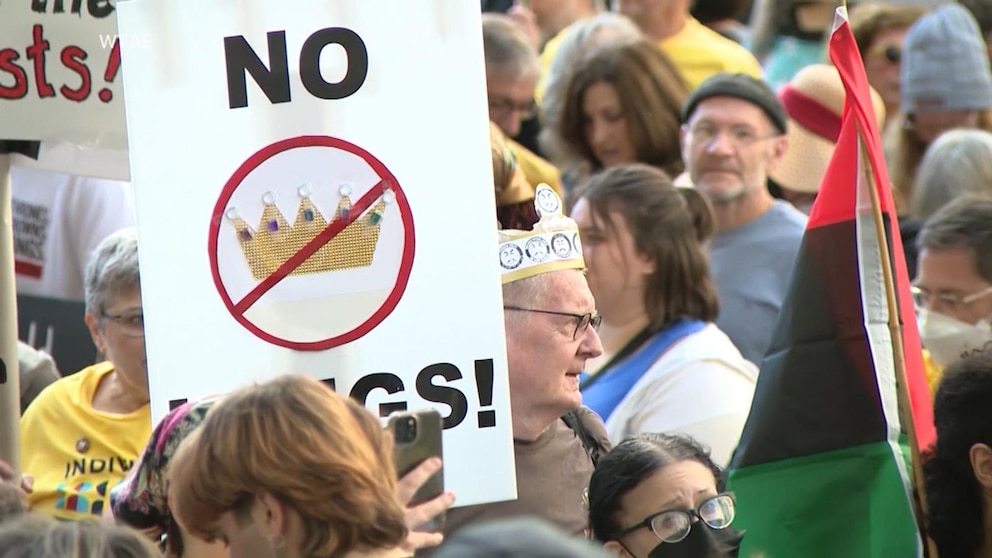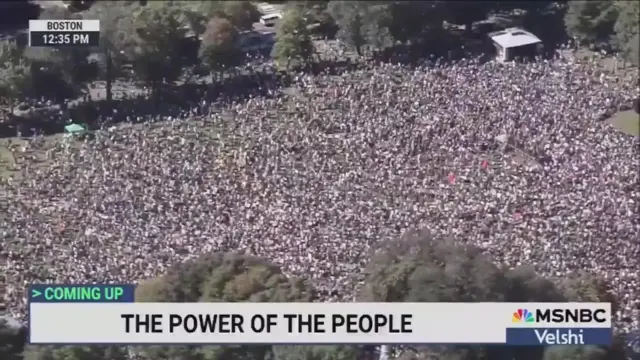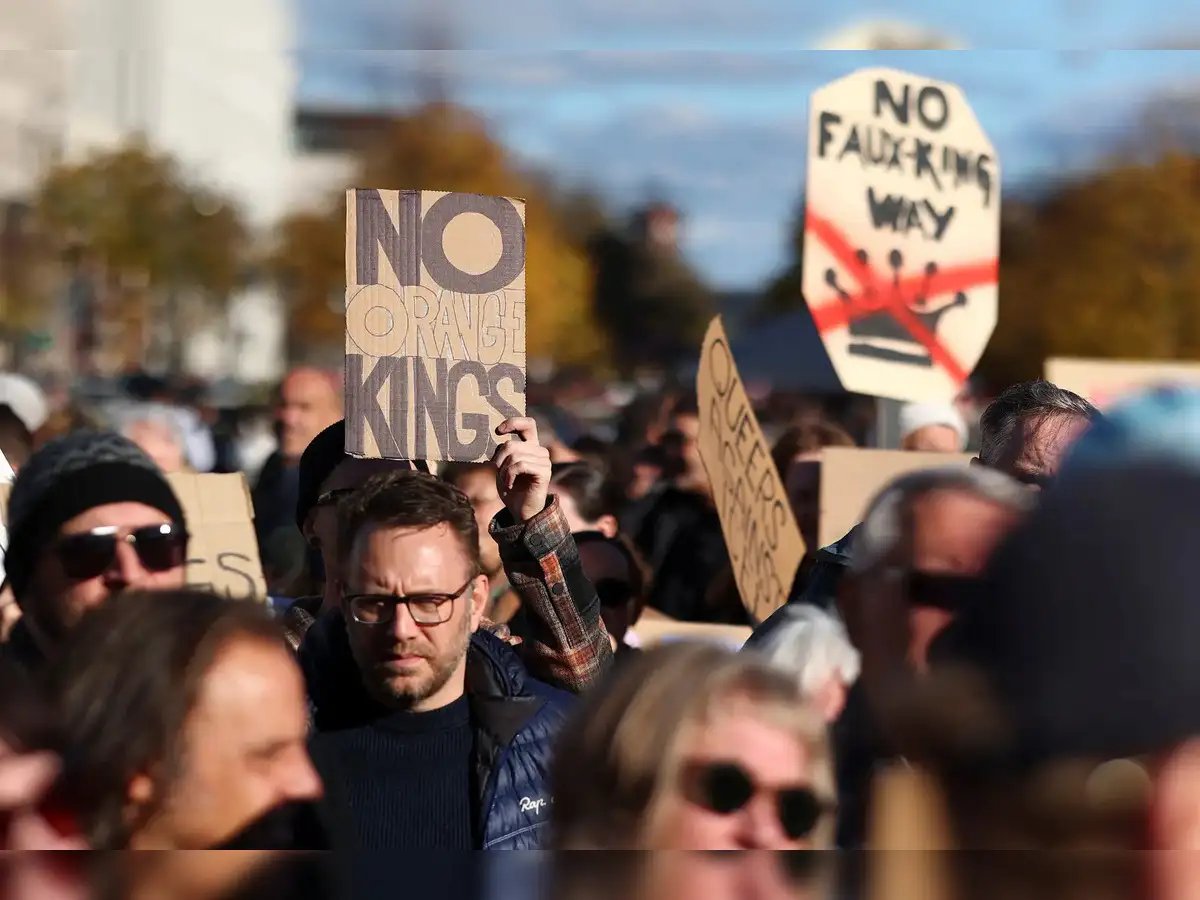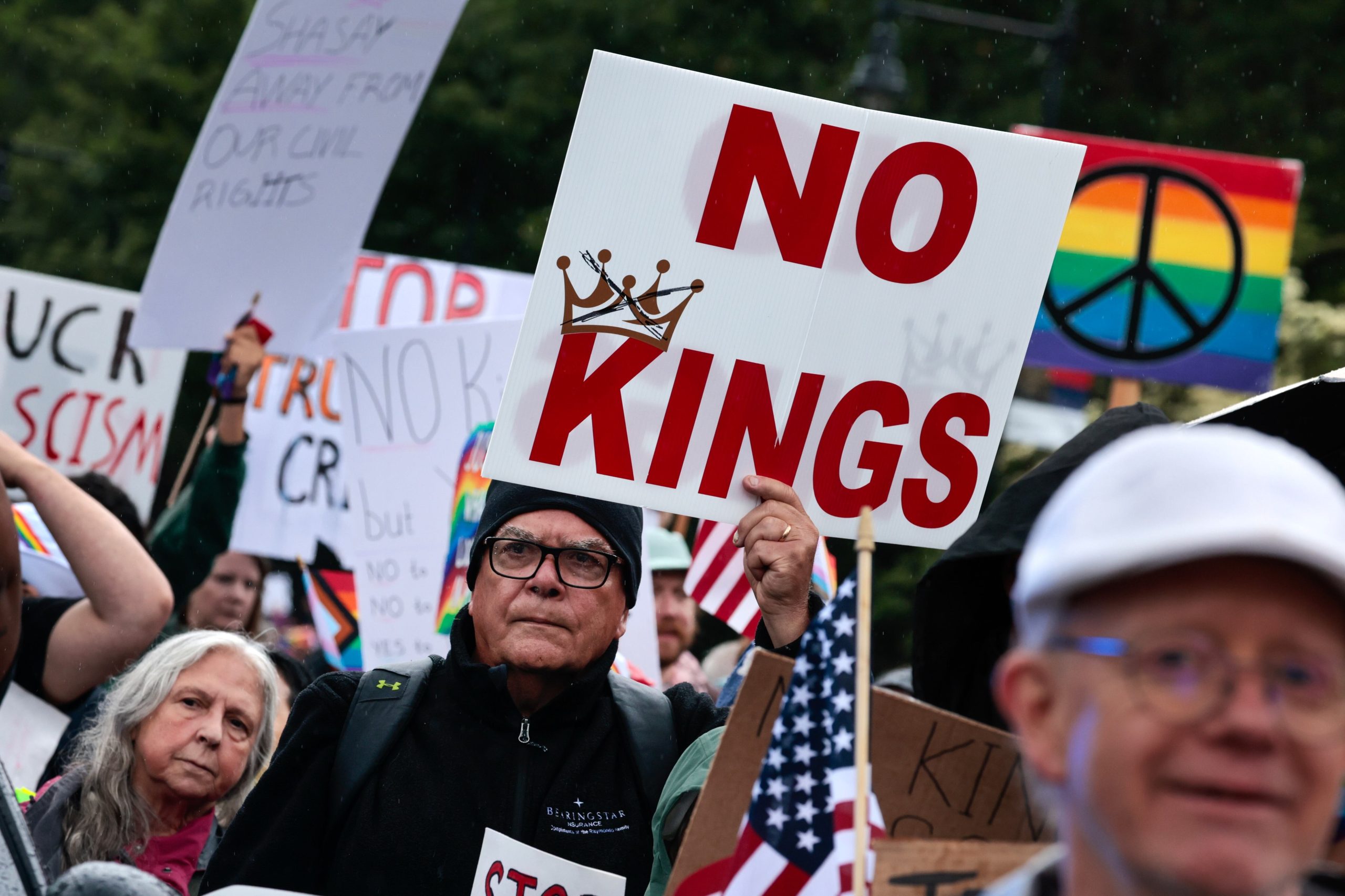Disclaimer: This article is presented for informational purposes only and is written from a neutral and nonpartisan perspective. It does not endorse, criticize, or promote any political figure, party, or ideology. All information is based on publicly available and verifiable sources to ensure accuracy and balance. The content aims to inform readers objectively about current events and social developments without expressing personal or political opinions.
Americans Rally Nationwide in “No Kings” Protests to Defend Democratic Principles
Across the United States, tens of thousands of demonstrators took to the streets this weekend for the “No Kings” protests — a coordinated nationwide movement calling for the protection of democratic norms and limits on presidential power.
The rallies, which spanned from New York City to Los Angeles, drew participants from diverse political backgrounds united by concerns over what they describe as threats to constitutional checks and balances. While the protests were largely peaceful, they signaled a growing sentiment among many Americans seeking to reaffirm democratic values, civic participation, and institutional accountability.

Peaceful Demonstrations in Over 50 States
According to coverage from Reuters and The Associated Press, demonstrations were organized in more than 2,000 cities across all 50 U.S. states. Major gatherings occurred in Washington, D.C., Chicago, Atlanta, and San Francisco, where thousands carried signs reading “Democracy, Not Monarchy” and “The Constitution Is Not Optional.”
Local authorities confirmed that the majority of rallies proceeded without incident, though some cities reported temporary traffic disruptions due to the size of the crowds.
In the capital, demonstrators marched from the National Mall to the Capitol Building, where speakers called for transparency and respect for institutional processes. Organizers emphasized that the movement was nonpartisan, advocating for balanced governance regardless of which political party holds power.

Political Leaders Join the Movement
Several lawmakers from both major parties were seen engaging with protesters or issuing public statements supporting the right to peaceful assembly.
Among them, Senator Bernie Sanders (I-VT) posted on X (formerly Twitter):
“No democracy survives when leaders place themselves above the law. The American people are standing up today to defend what makes this country free.”
Other figures, including Senators Cory Booker, Raphael Warnock, and Representative Adam Schiff, made appearances at regional marches, encouraging continued civic engagement and participation in upcoming elections.
Political analysts, including those from Politico and NPR, noted that the bipartisan turnout underscored growing concern among voters about the erosion of institutional norms.
Organizers Emphasize Peace and Participation
The “No Kings” campaign was coordinated by a coalition of civic organizations, advocacy groups, and grassroots volunteers.
Their stated mission, as published on their official website, is to “promote democratic accountability, the rule of law, and the peaceful transfer of power.”
Spokesperson Maria Jenkins, one of the movement’s coordinators, told CNN:
“This is not about one person or one administration. It’s about protecting the principle that no individual is above the Constitution.”
Organizers encouraged attendees to register to vote, participate in local government meetings, and advocate for free and fair elections.

Addressing Online Disinformation
Amid the protests, some misleading or AI-generated content circulated on social media platforms, falsely depicting political figures or protest scenes.
Fact-checkers from Reuters, AFP, and Snopes confirmed that several widely shared videos were digitally altered and not representative of real events.
Cybersecurity experts warn that the use of manipulated media in political discourse can undermine trust and inflame polarization.
The U.S. Department of Homeland Security’s Cybersecurity and Infrastructure Security Agency (CISA) has advised the public to verify media authenticity before sharing online content and to rely on official or established news organizations for credible updates.
A Broader Context: Americans and Democratic Resilience
Experts say the “No Kings” movement reflects a long-standing American tradition of peaceful protest. From civil rights marches to climate demonstrations, public gatherings remain a cornerstone of democratic expression protected under the First Amendment of the U.S. Constitution.
Political science professor Dr. Elaine Markowitz from Georgetown University told The Washington Post that these events “demonstrate a collective desire to reaffirm faith in democratic governance and citizen participation, regardless of partisan divisions.”
While protest movements alone do not dictate policy, they often shape national conversations. Similar efforts in the past have influenced legislation on civil rights, voting protections, and government transparency.

Government Response
In a statement released Saturday evening, the White House acknowledged the demonstrations, emphasizing the importance of free expression and civic engagement.
A spokesperson reiterated that “peaceful protest is a vital component of democracy,” and encouraged all citizens to engage respectfully in public discourse.
Law enforcement agencies nationwide reported no major incidents related to the demonstrations. The Federal Emergency Management Agency (FEMA) and local departments coordinated to ensure public safety, highlighting the cooperation between federal and local authorities during large gatherings.
Looking Ahead
Political observers note that the “No Kings” movement may continue to influence national discussions about executive power and democratic integrity ahead of the upcoming election season.
Advocacy groups plan to hold community forums, voter registration drives, and educational events over the coming months.
For many participants, the protests were not an endpoint but a beginning — a signal of renewed civic engagement.
As one demonstrator in Chicago told NPR,
“Democracy isn’t automatic. It needs participation, protection, and people willing to stand up for it.”
The Role of Media Literacy
Experts from the Harvard Kennedy School’s Shorenstein Center on Media, Politics, and Public Policy emphasize that civic education and digital literacy are key defenses against misinformation. By teaching individuals how to evaluate sources and detect manipulated content, society can strengthen the foundations of democratic trust.
The protests, and the surrounding debates about misinformation, highlight a growing consensus among policymakers and educators: that truth, transparency, and participation remain essential to the health of democracy.
Sources:
-
Reuters: “Thousands Join Nationwide Protests for Democracy”
-
The Associated Press: “Americans Rally to Defend Democratic Norms”
-
CNN: “Organizers of ‘No Kings’ Movement Emphasize Peaceful Participation”
-
Politico: “Lawmakers Join Demonstrations Promoting Constitutional Accountability”
-
NPR: “Grassroots Movement Calls for Checks and Balances”
-
CISA.gov: “Tips for Identifying and Avoiding Manipulated Media”


